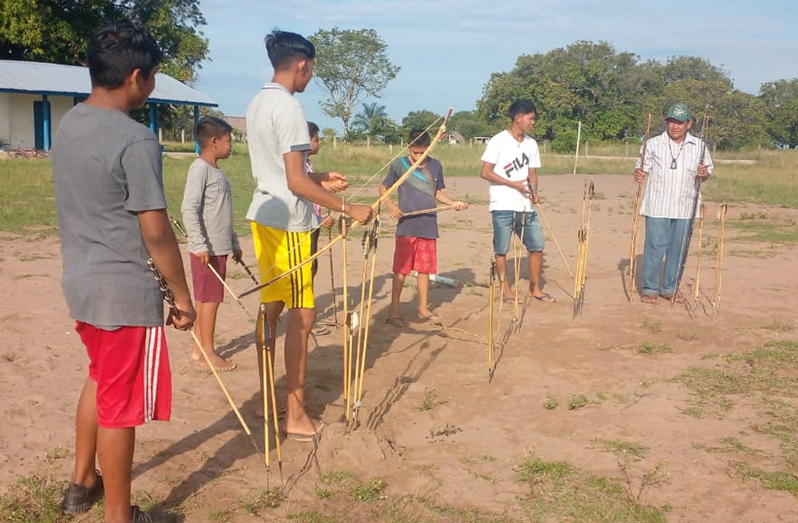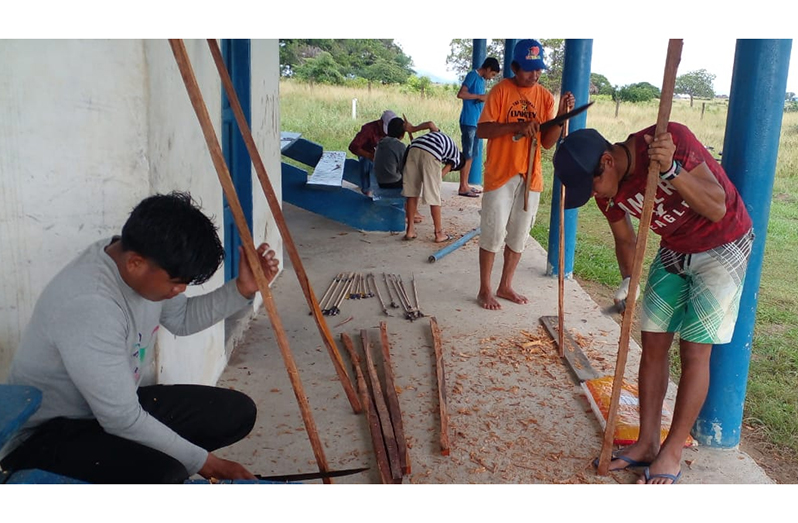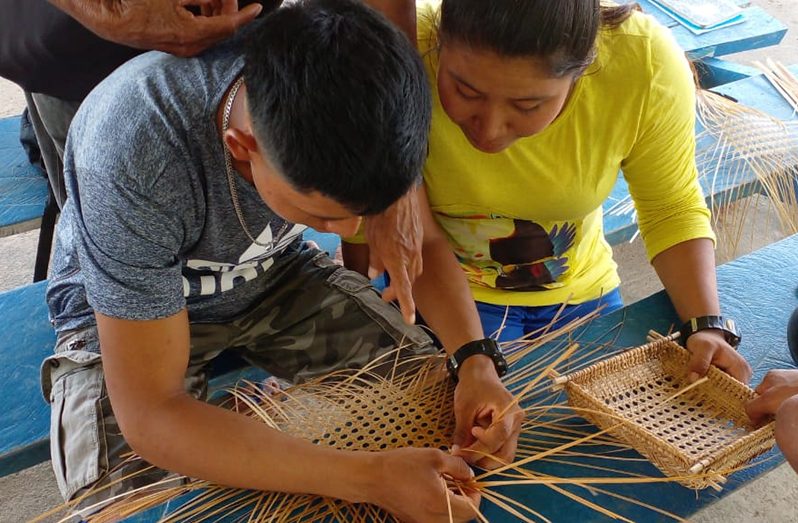GIVEN the decline in the transfer of traditional knowledge and skills from older indigenous generations to the younger ones over the last few decades, the South Rupununi Conservation Society (SRCS), an Indigenous-led grassroots organisation, has been facilitating classes in a number of Rupununi communities.
According to Neal Millar, Programme Coordinator of the SRCS, the aim of the classes is to provide a formal setting where learners have the time and space to learn these skills and knowledge to ensure that it can be passed from one Indigenous generation to another.
The classes were first piloted for 20 weeks in 12 communities in the Rupununi in 2021 with support from the Sustainable Wildlife Management – Programme Guyana and Cultural Survival.
Based on the success of those classes, the SRCS was able to partner with the Amazon Conservation Team Suriname in 2022 to hold in Shulinab, Karaudarnau, Maruranau and Sawariwau, 60 classes each.
“The classes are taught by village elders and resource persons who are selected by their communities and are then trained by SRCS on how to facilitate the classes. Six facilitators are selected in each community to teach three skills to a group of 30 children,” Millar explained.

Some of the skills that are taught in the classes include arrow and bow making, cotton spinning, hammock making, learning the local Wapichan and Macushi languages, creating tibisiri crafts and crafting of tools including matapees, cassava sifters and warashis.
“One of the unique aspects of these classes is their interactive and experiential nature. Instead of a traditional classroom setup, learning takes place outside and in different settings, allowing participants to directly engage with the lessons they are learning,” Millar noted.
He added: “For example, for the basket weaving classes, the children start by going to areas where the resource used to make the basket is grown. They then are taught how to plant the material, when to harvest it and how to do so sustainably.”
The SRCS hopes that, through these classes, traditional knowledge and skills will be preserved across generations and the cultural identity of the indigenous People of the Rupununi will remain strong.
However, Millar said that they are concerned that funding for these classes cannot continue indefinitely. Noting this, he related that the SRCS is working to further develop the project whereby the youth and their teachers will be able to sell their crafts.
“It is hoped that this will help to further incentivise them to continue practising their skills and to continue transferring knowledge,” he said.
Although the classes can only cater for 30 persons in each community, the facilitators have seen an increase in children wishing to join.
He related that facilitators reported that many adults who have never learned these skills or knowledge also want to join the classes.

“The facilitators believe that the children who have participated in the classes will do very well during competitions in Heritage Month as they have allowed children to practise more than children from other communities,” he said.
Millar noted that the importance of the classes go beyond cultural preservation as the Indigenous communities in the Rupununi region have been practising sustainable lifestyles for centuries, harmoniously co-existing with nature.
“This wealth of traditional knowledge holds the key to understanding how to maintain the delicate balance between human activities and the environment. Through these classes, the youth are exposed to a plethora of skills that contribute not only to their cultural identity but also to their understanding of sustainable resource management,” he explained.
Moreover, Millar related that the traditional knowledge classes act as a bridge between generations, fostering a sense of respect for the wisdom and experiences of elders.
“The youth gain a deeper appreciation for their heritage and cultural identity, combating the erosion of traditional values in the face of globalisation. At a time where the world is realising the significance of indigenous wisdom, the efforts of SRCS are providing an example of how traditional practices can pave the way for a harmonious and sustainable future,” he said.
As the SRCS continues to make efforts to ensure there is cultural transmission, Millar said that one of the given reasons for this not happening is that children are no longer interested in learning this knowledge or the skills.
However the SRCS strongly disagrees with this, since whenever given the opportunity, children have expressed an eagerness to learn.





.jpg)








